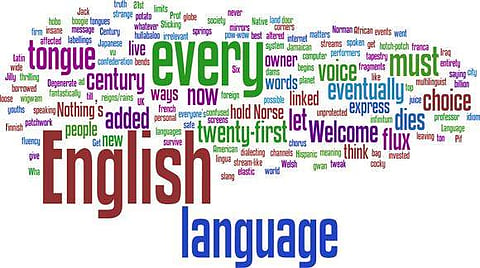

Reacting to last week’s column on how learners of English can achieve fluency without studying formal grammar, a retired professor of English commented that I should have mentioned that many Indians speak English like a book, that is, they speak written English. He further said that it could be the reason why many teachers of English give undue importance to grammar.
Commenting on the article, Steve Hirschhorn, a well-known applied linguist and teacher trainer said, “Many students around the world can discuss the metalanguage of grammar (declarative) but cannot use the language (procedural), as you note. So, for me, the argument is less about whether one can achieve fluency with or without grammar (any language use must comprise the stylistic conventions of grammar!) but with or without knowledge of the declarative rules of grammar.”
He also added that in countries where English is spoken as a second or foreign language, the problem (or one of them) is that those in charge of language education generally think that learning a language is like learning any other subject. True, English should not be taught like any other subject but should be taught and learnt as a skill. It is a life skill. Those who teach English as a life skill, give more importance to fluency than accuracy. In the words of Mr Hirschhorn, “Pushing for accuracy, especially since we know that fluency precedes accuracy, is a pointless and soul-destroying process — let’s get students achieving their communicative aims, accuracy will follow.”
In this context, I would like to stress the need to make our communication simple and effective. Though many are averse to complexity, some teachers of English seem to promote complexity as they are obsessed with grammaticality. They want their students to use long complex sentences in their writing assignments. Such insistence has a negative impact on learners’ spoken language too. They speak like a book. Complexity kills creativity. Complexity kills clarity. Complexity kills meaning. Complexity kills comprehension. Complex sentences should be used in writings only when required. There is no doubt that complex sentences add variety to sentence structures and they are needed as they show relationships between cause and effect, contrast, time relationships, etc. But too many complex sentences in a piece of writing can cause strain to the reader.
At times, when we speak we may use run-on sentences but our pauses and change of tone help listeners follow our speech easily. When we write we should not use run-on sentences as readability is affected. If we find long sentences we should break them into shorter units in order to enhance readability. The simple rule is this: a sentence should contain a single idea and not a string of ideas.
Let me narrate an anecdote. About a year ago, I had an unforgettable experience of being a judge at an essay competition. My co-judge who had shortlisted the top ten essays commented on one of the entries. She said that the candidate had written the essay in simple English and, therefore, could not be shortlisted. “If the candidate had used sophisticated words and phrases and some complex sentences he would have emerged the winner.” Her comment made me go through the essay. I liked it for four different reasons and told her that the essay was the best one.
The reasons were:
-Relevant content and well-supported ideas
-Coherence
-A range of words and phrases
-Plain English
Many teachers erroneously think that a piece of writing to be considered a good piece of writing should be written using high-sounding words and complex sentences. Is complexity more important than simplicity? Should complexity be insisted at the cost of clarity and readability? No. If a piece of writing is free from jargon and long-winded sentences and does not cause strain to the reader, then it is a good piece as far as language is concerned. In other words, it should be in plain English. It is ‘writing that is clear and straightforward, targeted at the appropriate reading level, and free of jargon and clichés.’
